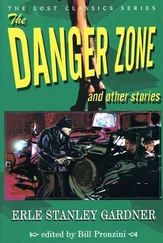She’d walked there once with Martin — in those days “Buddy”—when he’d motorcycled in from his college in Indiana and had offered to drive her to work in her father’s De Soto. He’d driven fast, as usual, his eyes rolling up to the rear-view mirror, on the look-out for police cars, and had gotten her to work much too early.
“Care to have an interesting experience?” she’d said.
Their footsteps echoed. The ballroom was half dark. They could just make out the carved figures on the ceiling, two storeys up, circling around the empty spaces from which once had hung huge chandeliers.
“It’s like a church,” he said. He had a crewcut. Leather jacket. He hung his cigarette off his lip like Marlon Brando. Already he’d written two novels — unpublishable; terrible, in fact, though of course she hadn’t said so. She was convinced, in spite of them, that he’d someday be famous, someday when he’d given up James Joyce.
She’d squeezed his hand and they’d stopped and, after a moment, kissed, then walked on, up to the front of the ballroom and up onto the stage, where the Duggers students gave their dance recitals. They looked up at the shuttered lights, ropes, catwalks — it was darker here, spooky, as if the stage machinery belonged not only to a different time but to a different planet. Again they paused to kiss, and he put his arms around her and after a minute she moved his hand to the front of her sweater, then under the sweater to her breast. With his usual difficulty, for all his practice, he unsnapped her bra. She felt her nipples rising, and he pressed closer to her. With a grandiose sweep of his free arm in the direction of the dim, ghost-filled hall, he whispered, “Lady, how would you like to be fucked, right here in front of all these people?”
“Hmm,” she said. After a moment, still with his hand on her breast, her hand keeping it there, she led him toward the further wing and the small door opening on a room she’d discovered weeks earlier, half filled with crates, electric wire, old tools, cobwebs, the rotting frames of old sets. Here and there stood old pieces of furniture — chairs, tables, couches — protected from the dust by tarpaulins. “Maybe we need a rehearsal,” she said. They passed under a high window through which a single crack of light came and she glanced at her watch. Fifteen minutes. She stood looking around, both his hands on her breasts, until he finally noticed the couch and went over and pulled away the tarpaulin. As he came into her, huge and overeager, as always — but so was she, so was she — she said, “Isn’t this an interesting experience?”
She glanced at Martin — Buddy middle-aged. He stared past the steering wheel, professional, absentminded. They’d slipped from his thoughts already, those years, the Duggers. His hands on the wheel were soft, almost fat, though still strong. She looked at his face. “What are you thinking?” she said.
Martin flicked his eyes open, half apologetic. “Nothing,” he said. “Something Athene tells Odysseus. Nothing.” He looked suddenly embarrassed.
She glanced out the window again, then reached for her purse, opening it, fumbling for a pill.
“Hurting again?”
Her mouth tightened in annoyance at that “again.” “Just tired,” she said.
“We should have taken a plane,” he said, and ducked to look up past the buildings.
The sky was gray, luminous and still, like Lake Erie from one of those hushed, abandoned beaches. She thought of Jacqui Duggers.
“There’s still a little coffee in the thermos,” Martin said.
“Coffee?”
“To help swallow the pill.”
“Oh. No, it’s done.” His helplessness cheered her. “Odysseus,” she thought. Homer had been the subject of his lecture at Urbana. She smiled a little sadly. So he was wishing, as usual, that he might talk about himself. Not that he would do it; he had far too much taste. And she, for her part … She shook her head and smiled again.
The whole left side of the building, as you entered from the street, was the Duggers’ apartment. It was the most beautiful apartment she’d ever seen, though not as original or even as spectacularly tasteful as she’d imagined at the time. She would see many like it in San Francisco, and far more elegant examples of white-on-white in London and Paris. Everything was white, the walls, the furniture, the chains holding up the chandeliers, the wooden shutters on the windows. Against all that white, the things they’d collected stood out in bold relief: paintings, presumably by friends, all very curious and impressive, at least to Joan — smudges, bright splashes of color, one canvas all white with little scratches of gray and bright blue; sculptures — a beautiful abstraction in dark wood, a ballet dancer made out of pieces of old wire, museum reproductions, a mobile of wood and stainless steel; books and records, shelves upon shelves of them. Their record-player was the largest she’d ever seen and had a speaker that stood separate from the rest. Once when Jacqui invited her in, to write Joan her check for her week’s work, Jacqui, leading the way to the kitchen, stopped suddenly, turned a ballerina’s step, and said, “Joanie, I must show you my shoes, no?” “I’d like to see them,” Joan said. Jacqui swept over to the side of the room, her small hand gracefully flying ahead of her, and pushed open a white sliding door. Joan stared. On tilted shelves that filled half the room’s wall, Jacqui had three hundred pairs of tiny shoes. She had all colors — gold and silver, yellow, red, green, some with long ties as bright as new ribbons, some with little bows, some black and plain as the inside of a pocket. “Where’d you get all these?” Joan said. Jacqui laughed. “Mostly Paris,” she said. She gave Joan a quick, appraising look, then laughed again. “Dahling, Paris you are going to love. There is a store, a department store, Au Printemps. When you go there, blow a kiss for Jacqui!” She rolled her eyes heavenward. “Ah, ze French!”
Years later, the first time Joan shopped at Au Printemps, she would remember that, and would do as she’d been told. And she would remember Jacqui too a few years later when, at Lambert Field in St. Louis, deplaning with her family from a European trip, she was approached by a news crew of very cool, very smart blacks from KSDF-TV, carrying camera and wind-baffled shotgun mike, who asked if she had any suggestions for improvement of the airport’s services. “Way-el,” she said thoughtfully, smiling prettily, batting her lashes and speaking in her sweetest Possum Hollow drawl. (Martin and the children had fled into the crowd.) She tapped her mouth with a bejewelled finger and gazed away down the baggage area, then said pertly, as if it were something she’d been thinking for a long, long time and rather hated to bring up, “Ah thank it would be nice if awl these people spoke French.” Her performance was included in that night’s local news. Her parents missed it, as was just as well. Relatives telephoned to report with pleasure that Joanie had been on television. No one mentioned that anything she’d said was peculiar.
“I wonder if I’ll ever get to Paris,” she’d said that afternoon in Jacqui’s apartment.
Jacqui had laughed like a young girl, though she was then over forty. “Keep playing the piano and don’t theenk twice,” Jacqui said. “If you don’t go to Paris, then Paris will have to come to you.”
Where would they have gone, Joan wondered now, when the neighborhood had grown too dangerous to live in? Were they still alive? It came to her suddenly, for no apparent reason, that Pete Duggers had looked like the hero of her favorite childhood book, Mr. Mixiedough, in the story of the whole world’s slipping into darkness. It was a book she’d wanted for Evan and Mary, but there seemed to be no copies left anywhere; not even the book-search people from whom Martin got his rare old books could find a trace of it. Had it been the same, perhaps, with Pete and Jacqui Duggers — swallowed into blackness? She’d asked about him once at the Abbey, on Thirteenth Street in New York, when she’d gone — three times — to a show called The Hoofers , which had brought back all the great soft-shoe and tap men. On the sidewalk in front of the theater afterward, while she was waiting for Martin to come and pick her up, she’d talked with Bojangles Robinson and Sandman Sims — they’d shown her some steps and had laughed and clapped their hands, dancing one on each side of her — and she’d asked if either of them had ever heard of Pete Duggers.
Читать дальше












